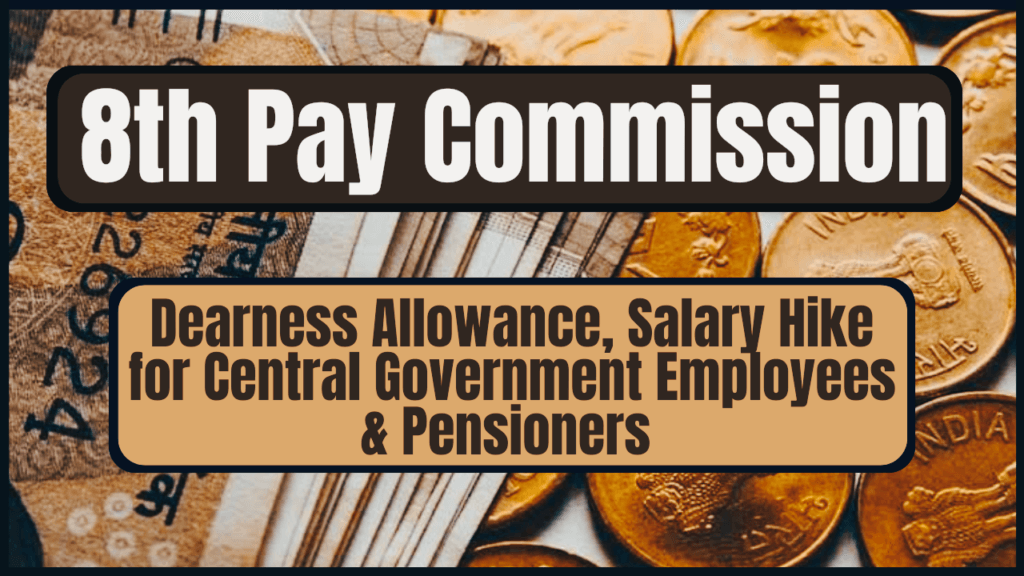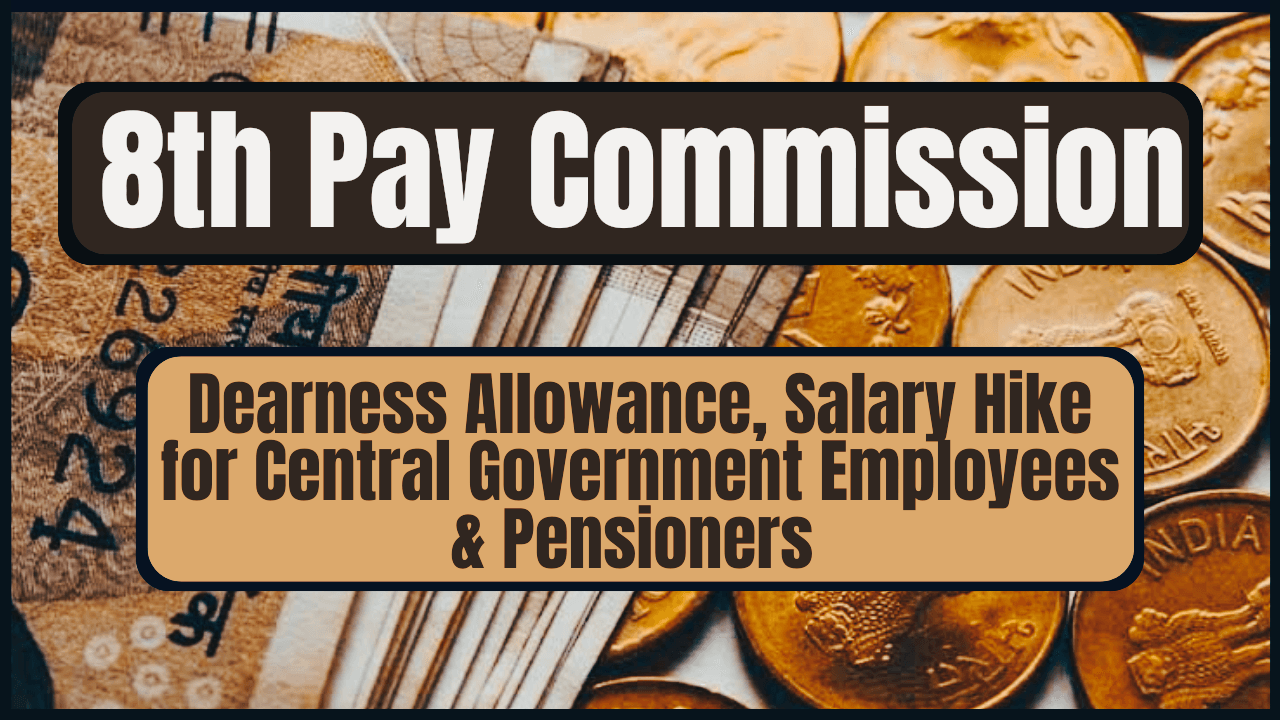The Union Cabinet has officially approved the 8th Pay Commission, set to be implemented on January 1, 2026, bringing long-awaited relief to central government employees. This decision, announced on January 16, 2025, aims to revise salaries, pensions, and allowances to align with current economic conditions and inflation.

This implementation is expected to introduce a significant financial boost to the salaries of government employees and retirees, increasing morale and productivity in the public sector.
8th Pay Commission 2025
| Approval Date | January 16, 2025 |
| Implementation Date | January 1, 2026 |
| Constitution Timeline | Expected by mid-2024 |
| Fitment Factor | Proposed range: 2.28 to 2.86 |
| Minimum Basic Pay | Likely to increase from ₹18,000 to ₹41,000–₹51,480 |
| Minimum Pension | Projected rise from ₹9,000 to ₹20,500 |
| Allowances | Revisions in DA, HRA, TA, and other allowances based on new pay scales |
| Pay Matrix Update | Structured revision to align with new fitment factor |
| Employee Benefits | Improved gross salary, financial stability, and increased morale |
8th Pay Commission Highlights
- Implementation Timeline:
The 8th Pay Commission will be implemented starting January 1, 2026, with its constitution expected by mid-2024. - Proposed Fitment Factor:
The fitment factor, a key multiplier used to determine salary and pension revisions, is projected to range from 2.28 to 2.86.- Minimum basic pay could increase from ₹18,000 to between ₹41,000–₹51,480.
- Pension Revisions:
Pensioners will benefit from proportional increases.- The minimum pension under the 7th Pay Commission was ₹9,000.
- With a fitment factor of 2.28, the minimum pension is expected to rise to ₹20,500.
Impact on Central Government Employees Salary Structure
The Pay Matrix, which organizes salaries based on seniority and position, will be updated. The new structure will bring the following changes:
- Basic Pay: Adjusted using the proposed fitment factor.
- Allowances: Dearness Allowance (DA), House Rent Allowance (HRA), and Travel Allowance (TA) will increase in proportion to the revised basic pay.
- Gross Salary: A substantial rise in gross pay is expected across all levels.
Illustrative Example of 8th Pay Comission Hike:
For an employee earning a basic salary of ₹18,000:
- Revised Basic Pay: ₹41,000
- DA (70%): ₹28,700
- HRA (24%): ₹9,840
- Gross Salary: ₹79,540
Employee Reaction on 8th Pay Comission Approval
The announcement has been welcomed by central government employees and pensioners, who had been awaiting salary revisions amid rising inflation. The revised pay structure is expected to provide financial security and stability.
Employee unions have also expressed optimism, emphasizing the need for equitable revisions that reflect economic realities.
Government’s Vision towards 8th Pay Comission
This revision is part of the government’s broader goal to improve compensation standards in the public sector. By addressing inflation and aligning salaries with current market trends, the 8th Pay Commission aims to enhance employee satisfaction and performance.

Deepak Verma is a graduate from Delhi University with a First Division. With 8 years of teaching experience in Mathematics and Science, he has mentored secondary and senior secondary students. Currently, he is an author at SAMSA, where he applies his expertise to create engaging educational content.


